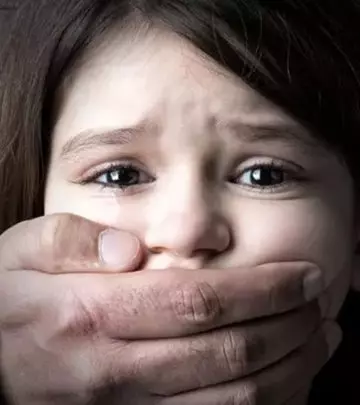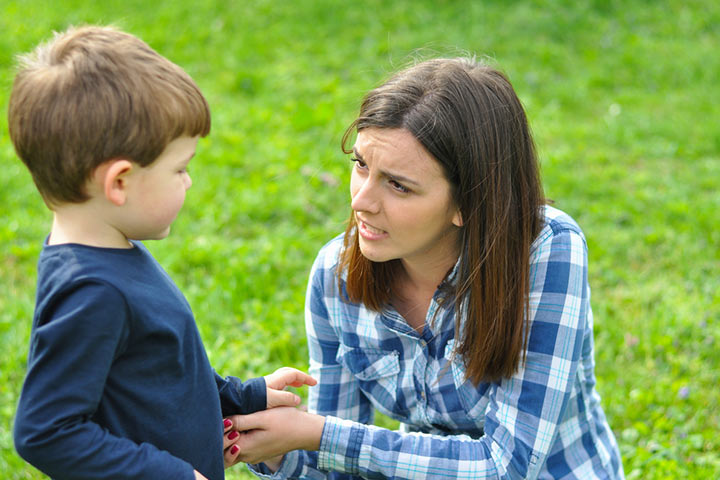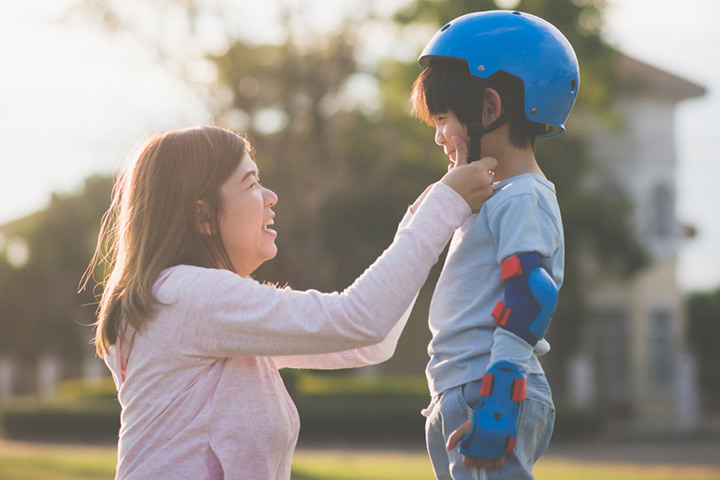
Image: Shutterstock
“There is no such thing as a perfect parent so just be a real one.” – Sue Atkins.
Being a parent is definitely not easy in the present world. Leave alone the day to day chores and challenges that a parent faces, it’s providing the right counseling to the children that is considered as the toughest task to do. And when we say counseling, it isn’t related to just talking to your children about mere behavioral issues or discipline and manners. We are talking about a very important concern, “Child Abuse”. These terms definitely send a chill down our spine, but it is very important to educate our children about it no matter what their age might be.
Yes, you might feel uncomfortable talking about it to your kids. But keeping them informed about it will not only save their innocence but will also keep you in peace. Having an open-hearted yet mature conversation with your child about such issues now and then will help you keep a track of their understandings. It is also advisable to increase the level of their awareness as they grow old. They must be taught about how to avoid and how to react when in situations like these.
We came up with some basic precautions that one can use to let their child know about the good touch and the bad touch.
1. Start From The Adolescent Age.
Image: Shutterstock
Adolescence here refers to anywhere between 2-3 years when a child is able to comprehend. Right from their toddler days, children do have an understanding of parts of their body that are private. Therefore, don’t worry that your child might not understand the issue. Start teaching them and you will know for yourself where their understanding level is.
2. Help Them Draw Their Safety Boundary.
Image: Shutterstock
Educate your child about the safety boundary; it could be a touch, a stare or even a talk. Teach them that no one is supposed to touch the parts of their body which are covered with undergarments except for you or a doctor (only when you are around). Let them know that any feeling of discomfort, when a person is talking, staring or holding them, has to be informed to you or any other elderly person around them whom they trust.
3. Talk To Them Like You Were Their Best Friend.
Image: Shutterstock
Your approach towards them matters! Therefore make sure you go easy on them while talking about such issues. Don’t wear a serious look and scare your child. Instead, sit down leisurely and start off. This will gain their attention without making them scared.
4. Don’t Just Create Awareness, Educate Them!
Image: IStock
It is very important to give out information to your kids keeping their age in mind. You can start off by talking about the body parts with the help of their school book. As they grow older, educate them about sex in the most normal way by not making it sound scary. As they turn older, you must talk to them about more serious terms like rape, sexual harassment, stalking, or molestation.
By education here we mean that your child must be able to talk about it to you in the most comprehensive manner. As they grow old, they need to be aware of the terms that describe abuse, they need to know about the departments in their schools or colleges where they can go to report such incidents. Creating awareness is one thing and educating is another. Make sure you provide your children with both.
5. When To Say YES/NO To Affection.
Image: Shutterstock
You have to let your child know that it is not compulsory to accept or return the affection. If they are not comfortable with a relative asking them to sit on their lap, they can say “NO!” Learning to say the two letter word will imbibe the understanding of consent in your child right from a young age. They can say no to hugging, kissing or even shaking hands with their friend or relative if it makes them uncomfortable. There is no harm in it.
We should instill all the necessary knowledge in our children that will help them keep themselves safe in our absence. It is an undeniable duty that we should fulfill as parents. Sharing this article with every child or parent you know is fulfilling your bit of responsibility. Please share!


















